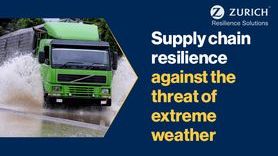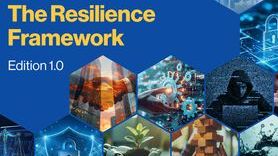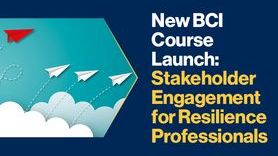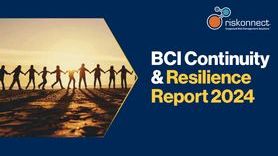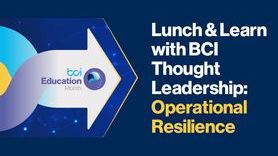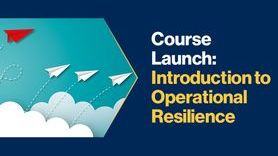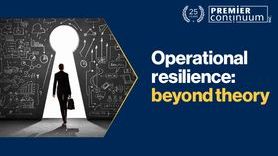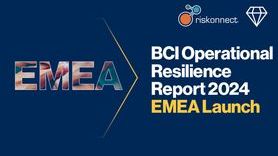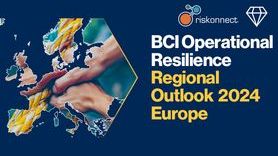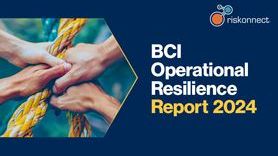Strengthening supply chain resilience in Saudi Arabia: Strategies for a sustainable future
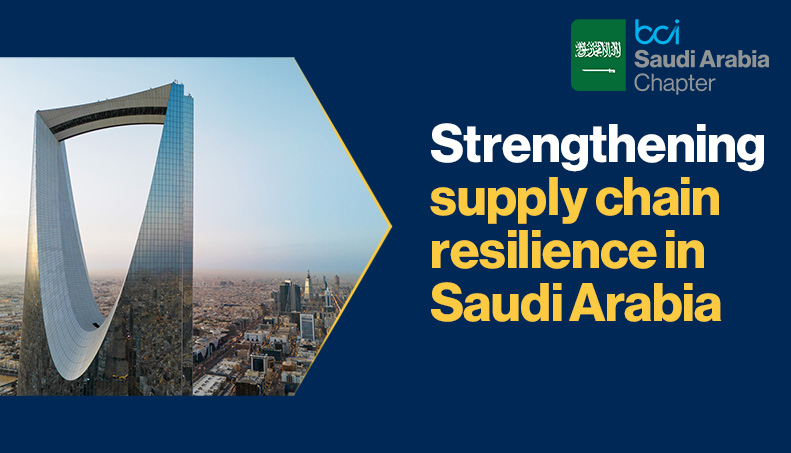
The Kingdom of Saudi Arabia (KSA) is becoming a key player in global trade and logistics. As the country is transitioning to a more diversified economy, supply chain resilience (SCR) has become crucial for its sustainability and continuity among different industries.
The Kingdom plans to position itself as a logistics hub for the region with its Vision 2030 initiatives, which have led to growth in the logistics sector. This article will focus on the importance of supply chain resilience, the challenges it faces, and the strategies implemented by KSA to strengthen its supply chain resilience.
Importance of supply chain resilience and global challenges
Supply chain resilience is essential, especially in today's rapidly changing economy. It helps mitigate risks posed by disruptions, whether from natural disasters, geopolitical tensions, or health crises like COVID-19. Given the country’s role as a global energy supplier and its ambitions to expand sectors like manufacturing, tourism, and technology, developing a resilient supply chain is vital for sustained growth and stability.
Supply chain resilience presents a unique challenge in our globally connected world. According to the BCI Supply Chain Resilience Report 2024, nearly half (43.6%) of the surveyed organizations, comprising 109 respondents from 37 countries experienced disruptions due to third-party failures, a significant rise compared to 2023. This highlights the importance of supply chain mapping and supply chain due diligence, which provides transparency and helps to identify and mitigate potential risks early. Additionally, the same report highlighted the top three causes of supply chain disruptions in 2024 are third party failure, cyber-attack and adverse weather & natural disasters.
The Kingdom is experiencing growth driven by foreign investments, which have contributed to expanding its supply chain and logistics industries. For instance, according to Bloomberg Media Studio's 2022 Global Foreign Direct Investment (FDI) report, KSA plans to allocate 54% of its FDI to develop local supply chains (Bloomberg, n.d.). Therefore, SCR is crucial to the Kingdom as it pursues its 2030 Vision, aligning its supply chain strategies with key business objectives to remain competitive in an ever-changing marketplace. The Kingdom also implements SCR initiatives to navigate challenges, foster collaboration, empower local talent, and promote sustainability and innovation.
Initiatives to mitigate supply chain challenges and risks
The Kingdom has put in place different supply chain resilience initiatives to mitigate and overcome supply chain challenges that may affect the growth and efficiency of its economy. These initiatives will help grow the country's key sectors and industries and attract investments (Ministry of Investment, 2022). Challenges include trade disputes, pandemics, and others that may weaken the global supply chains and lead to an increase in the prices of commodities along with disrupting the distribution and production processes. The initiatives include, but are not limited to the following:
Introducing new networks
Saudi Arabia's National Investment Strategy has launched a new GSCRI network (Global Supply Chain Resilience Initiative). GSCRI is a core national strategy that will improve KSA's global supply chain resilience. This initiative will increase FDI inflows for export-related products in different sectors. The industries that this initiative prioritise include aerospace, pharmaceutical manufacturing, medical devices, food processing, and renewables, etc. (Ministry of Investment, 2022).
Economic cities and industrial zones
The development of economic cities and industrial zones is another testament to KSA’s initiatives to counter supply chain challenges. For example, the NEOM project and King Abdullah Economic City (KAEC) aims to diversify and grow the economy, create job opportunities, and increase competitiveness. These zones will work as specialised hubs for industries, technology, and logistics, providing businesses with the incentives and infrastructure to operate in the Kingdom. They will also attract foreign investment and strengthen supply chain resilience with localised production and distribution capabilities (SIDF, 2023).
Localization
Developing various programs, such as manufacturing and sourcing initiatives to support localisation has become a national strategic priority. For example, the National Industrial Development and Logistics Program will help drive economic diversification towards growth and attract foreign investment. One of the key commitments of this programme, by 2030, is to localise the pharmaceutical industry by 40%, domestic food production by 85% and overall defence and security expenditure by 50% (SIDF, 2023). Additionally, the establishment of the National Unified Procurement Company (NUPCO) strengthens supply chain resilience by acting as a centralised procurement body for the public healthcare sector, overseeing the procurement, warehousing, and distribution of medical supplies. The Kingdom has also introduced incentives like tax breaks and subsidies to encourage companies to open their production plants in the domestic market.
Transportation and port infrastructure
The Kingdom has invested heavily in expanding and modernising its transportation networks and port infrastructure to counter supply chain challenges. For instance, the National Industrial Development and Logistics Program (NIDLP) plans to invest $133.3 billion to develop essential infrastructure in airports, railways, and ports to strengthen supply chain resilience. (National Industrial Development and Logistics Program, 2021-2025).
Strategic stockpiling
The Kingdom has increased efforts to establish strategic reserves for essential goods, including food and medical supplies, as part of its national preparedness strategy. Strategic stockpiling improves supply chain resilience by providing a barrier against market disruptions. It also ensures that raw materials that are critical for production remain available when supply chains are disrupted, helping to prevent shortages, price increases, and production delays.
Investment in technology
Prioritising digital transformation has become a key component in building resilient supply chains. KSA has embraced automation, digitalisation, and innovation, incorporating technologies such as blockchain and IoT to enhance supply chain resilience, reduce costs, and improve operational efficiency. (Forbes, 2024)
Cross-border collaboration and trade agreements
The Kingdom has strengthened its relationships with regional and global trade partners and developed numerous free-trade zones with other countries to attract investment and enhance its supply chain resilience. The partnership will help the Kingdom decrease the risks it faces in the form of geopolitical tensions or trade restrictions by ensuring that alternative routes and suppliers are available in case of disruptions. (Saudi Press Agency, 2024)
Sustainable and eco-friendly supply chains
Under Vision 2030, KSA has introduced sustainable and eco-friendly supply chain initiatives. It has introduced 60 initiatives under the Saudi Green Initiative (SGI) to promote sustainable energy use and environmental preservation, in order to become an attractive market for ESG investments and support its supply chain resilience. The mission of SGI is to decrease carbon emissions and become the cheapest source of green energy for eco-friendly manufacturing processes (Ministry of Investment, 2022).
References
SIDF. (2023). Building Resilience: A Focus on Localization and Supply Chain. SIDF.
https://sidf.gov.sa/en/MediaCenter/ESGIntelligence/SIDF_Localization%20and%20Supply%20Chain%20report.pdf
The Saudi Food Show. (2024). Supply Chain Challenges for the Future in Saudi Arabia - Implications for Private Brand.
https://www.thesaudifoodshow.com/articles/supply-chain-challenges-future-saudi-arabia-implications-private-brand?&sortby=customfield_41897%20desc&searchgroup=libraryentry-articles
TLME News Service. (2024). Saudi Arabia to Invest US$267 Billion in Logistics Sector by 2030. Transport & Logistics.
https://www.transportandlogisticsme.com/global-news/saudi-arabia-to-invest-us267-billion-in-logistics-sector-by-2030#:~:text=Sustainability%20and%20Technological%20Advances,mobility%20initiatives%20across%20the%20Kingdom.
The National Industrial Development and Logistics Program (NIDLP). (2012-2025). National Industrial Development and Logistics Program Delivery plan.
https://www.vision2030.gov.sa/media/bsan2azp/2021-2025-national-industrial-development-and-logistics-program-delivery-plan-en.pdf
Forbes. (2024). Trade Finance Driving Saudi Arabia’s Economic Transformation: An example of innovative growth.
https://www.forbes.com/councils/forbesfinancecouncil/2024/11/12/trade-finance-driving-saudi-arabias-economic-transformation-an-example-of-innovative-growth/
Saudi Press Agency. (2024). HRH Crown Prince Launches “Global Supply Chain Resilience Initiative” to Position Saudi Arabia as a Key Link in Global Supply Chains.
https://www.spa.gov.sa/2394657
Disclaimer
In the spirit of transparency, AI was used in the following ways to support the creation of this article:
• AI was used to analyse the data features in this piece
• AI tools were used to assist in fact-checking and verifying the information
• AI was employed to cross-check sources and data for accuracy
About the author



